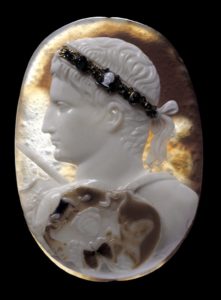PHILOLOGIA C. ET OPERA MAIORA L. C. // Classical Philology and Classics Majors

The Classics Department offers two majors. Either helps a student to build on his earlier preparation in the core, and to study the writers of classical antiquity in ever greater depth. Both require 8 advanced courses; and it should be noted that the advanced language requirements are the same in both, until a student has taken 3 advanced language courses in one classical language. But there are some salient differences, which we here roughly summarize. (For further details, see the Basic Requirements and Suggested Sequence for each degree. )
Both majors train students well in the languages. That in Classical Philology is one of the most rigorous in the country; in recent years it has enabled U.D. students to be accepted by a dozen or so of the nation’s best Ph.D. programs.
Basic Requirements for a major in Classical Philology
The major in Classical Philology is excellent preparation for graduate and professional school, particularly for graduate work in Classics. Students wishing to teach at pre-college levels will also want this major. It requires at least 6 advanced language courses, but leaves some room for courses taken in translation on the history, politics, literature, art, or philosophy of antiquity.
Basic Requirements for a major in Classics
The major in Classics requires only 4 advanced language classes. There is thus more space for advanced courses in translation on the history, literature, art or philosophy of antiquity. This is designed for students who do want a thorough grounding in the language and life of the ancient world, but have less time for advanced language study — perhaps because they came with little or no prior training in Greek and Latin; or perhaps because they wish to take a double major in Classics and some other field; or for some other reason.